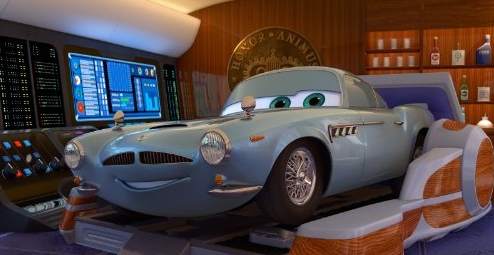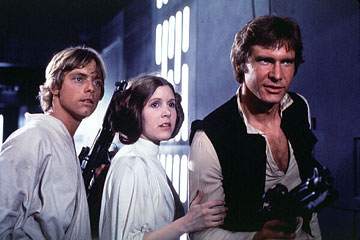Okay, so the word on Cars 2 isn’t good, but just think how much money the toys are going to make!
It’s a big lament for many in Hollywood about how they have to rush their movies because the toys are being manufactured and are about to hit the stores, although for a Pixar film toys are a given, and apparently they’ve become quite a bonanza for the company.

According to Deadline.com, Cars has helped make Disney the number one licensor in the world, and as Entertainment Weekly reports, Cars made a whopping $8 billion in merchandise before Cars 2 even hit the theaters. Toy Story 3 has also sold $2.4 billion in merchandise as well.
Of course, the film that blew merchandising wide open for movies was Star Wars, which turned into an incredible money making empire for George Lucas.
According to the book Easy Riders, Raging Bulls, as part of his deal Lucas retained the merchandising, sequel and soundtrack rights.
Alan Ladd Jr., the former head of Fox that gave Star Wars the green light, recalls, “After American Graffiti came out and was such a big hit, George’s agent came to me and said, ‘Look, instead of additional money, I’d rather have a big slice of the merchandise.’ We said fine because merchandising had never been anything before.

“You may have sold a couple of small sharks or Jaws t-shirts, but merchandising was the farthest thing from anybody’s mind in terms of moneymaking for anybody. It just hadn’t been done before. When you’re making that much in film rentals, you’re not unhappy about George filling his coffers with a little more with the merchandising.”
As Ladd mentioned, there was indeed merchandising for Jaws as well, just nowhere near on the level of Star Wars, although Spielberg did quite well himself.
By the time Jaws became the biggest grossing film in cinema history in September 1975, 500,000 t-shirts, and 300,000 copies of the soundtrack were sold, and the paperback edition of the book went through the roof as well.
Without reading the fine print, Bantam signed away the rights to the illustration on the cover of the Jaws paperback, which was also used on the film’s poster, which the company estimated cost them $2.5 million. (Then again, they sold millions of paperbacks, so they didn’t do too shabby themselves.)
And yes, in addition to t-shirts, paperbacks and soundtrack albums, Jaws also had beach towels, puzzles, games, and toy rubber sharks you could buy at Universal Studios.






